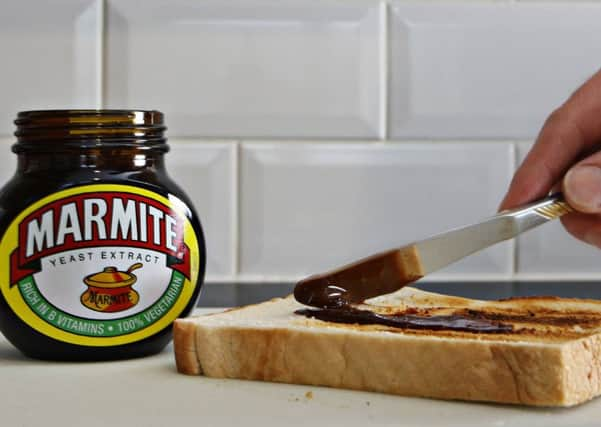Leader comment: Tesco row highlights inflation danger


Although the companies apparently patched up their differences last night, leaving Marmite-lovers and fans of Hellmann’s mayonnaise breathing a sigh of relief as the products were returned to Tesco shelves, the incident as a sign of things to come.
Experts, including one of Scotland’s most prominent retail studies professors, Leigh Sparks, have warned that it is inevitable that prices are going to rise – probably by early next year.
Advertisement
Hide AdAdvertisement
Hide AdIt has always been a case of when, not if, this will happen.
The falling pound will undoubtedly leave many companies facing rising costs – perhaps not yet, as many larger corporations will hedge their purchases well into the future – but within the next few months.
There is nothing that business – and the markets – like less than uncertainty. And Britain’s future, as it looks towards the triggering of Article 50 and Britain leaving the European Union, is without doubt uncertain.
Whether Brexit will, at some point in the future, offer us the advantages that Leave campaigners have long been peddling, remains to be seen. But what is certain is that, whether Britain should or should not have voted to leave the EU, the decision to do so will create a situation of economic instability for some time while the situation is bedded in and the UK government clarifies how the departure will practically work. This uncertainty has already sent the pound plunging to historic lows, leaving companies which import goods in a difficult position.
Rising costs need to be absorbed somewhere and yesterday’s stand-off between Tesco and Unilever is the first battle we have seen – in public at least – about whether it is supplier or retailer who should do so.
Ultimately, if the retailer is forced to take on the extra costs, that will be passed down to the consumer, either by a rise in price or, as we have seen before, in the gradual downsizing of products, while the ticket price remains the same.
We have seen this regularly since the recession of 2008, when companies were suffering from a financial squeeze and used the technique as a way of pushing through a price increase in the hope that consumers will not notice. McVitie’s was one of the culprits, reducing the pack size of its dark chocolate digestive biscuits from 332g to 300g while the price remained the same or actually slightly increased.
We have got increasingly used to low food prices – we all spend a far smaller proportion of our incomes on food now than we did 30 years ago – but we have to face facts that they are going to rise.
Advertisement
Hide AdAdvertisement
Hide AdIn turn, that will drive inflation higher, something that Remain campaigners have long warned about as a consequence of Brexit. Yesterday’s debacle is the retail industry alerting the government to the difficulty and the government needs to act.